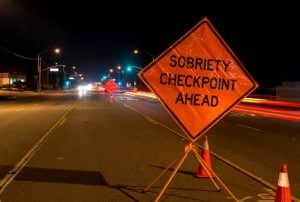Field sobriety tests are designed for you to fail. Don’t take them!

The Request May Be Phrased as a Demand
Law enforcement officers want you to take field sobriety tests because your failure can add more evidence to the case against you. Therefore, you can expect the request for you to submit to testing to be phrased more like a demand. Don’t be fooled, however. You are not required to submit to this testing, and in fact DUI attorneys recommend that you refuse testing in order to avoid handing the prosecution any evidence against you.
One of Three Tests May Be Given
The National Highway Transportation Safety Administration has approved three standardized field sobriety tests for use in DUI stops. These tests are the horizontal gaze nystagmus test, the walk & turn test, and the one-leg stand test. If you do choose to submit to testing, you can expect to take one of these three tests.
Environmental and Physical Conditions May Interfere
Field sobriety tests are designed to assess your mental and physical coordination and agility. However, if conditions are less than ideal you won’t be able to demonstrate your full abilities. For example, if the pavement is slippery or uneven, the lighting is poor, or the area is too noisy to hear the officer’s instructions, you could fail the test even when stone sober. The same goes if you are over 60, have any mental or physical impairment, or are wearing restrictive clothing like heels or a tight skirt.
Test Results Can Be Challenged Later
Field sobriety tests are notoriously unreliable. According to the NHTSA’s own data, even the most accurate test done in the most ideal conditions is only 77 percent accurate. So even if you fail a test in the field, you can expect that a DUI attorney will have an excellent chance of disproving the result in court.




